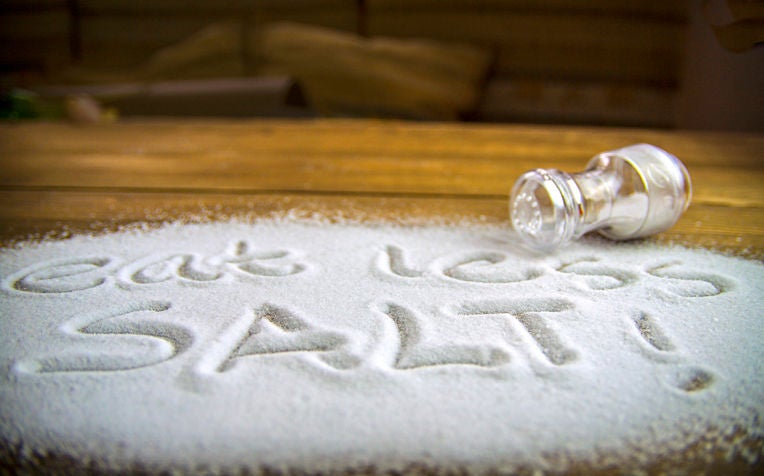HealthXchange will NEVER ask you to transfer money over a call. If in doubt, call the 24/7 ScamShield helpline at 1799, or visit the ScamShield website at www.scamshield.gov.sg.
Reduce Salt in Your Diet: It's Important To Your Health

Reduce salt intake gradually to help your tastebuds adjust.
Sodium is essential for your body. It helps regulate fluid balance, blood volume and blood pressure. Your muscles and nerves also need sodium to work properly. However, your body needs only a small amount of sodium.
The recommended amount of sodium intake is less than 2,000mg per day, equivalent to one teaspoon (5g) of salt.
But most Singaporeans are consuming up to 8.3g of salt daily on average. This comes from the salt and sauces that are added during food processing and meal preparation.
Why is reducing sodium intake important?
Excess sodium acts like a sponge and retains water in your body. This, in turn, leads to an increase in blood volume and raises your blood pressure. Hence, excessive sodium intake is a key risk factor of high blood pressure, which increases the risks of stroke, heart attack, heart failure and kidney failure.
Studies have shown that when daily sodium intake is reduced in people who have kidney, heart and liver problems, their conditions improve.
The Department of Dietetic & Food Services at Changi General Hospital (CGH), a member of the SingHealth group, shares the sodium content for common foods and seasonings.

Read next page for tips on how to reduce sodium in your diet.
Ref: N18
Related Articles
Public Events
Get the Health Buddy App
© 2025 SingHealth Group. All Rights Reserved.

















 Get it on Google Play
Get it on Google Play